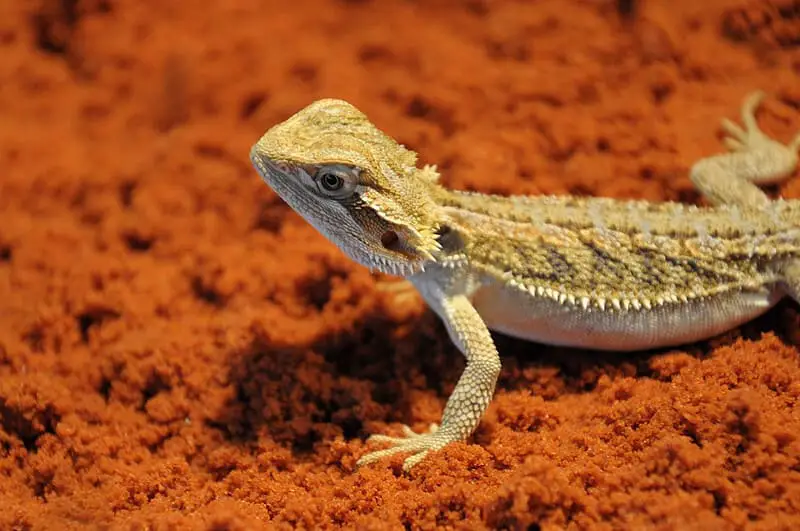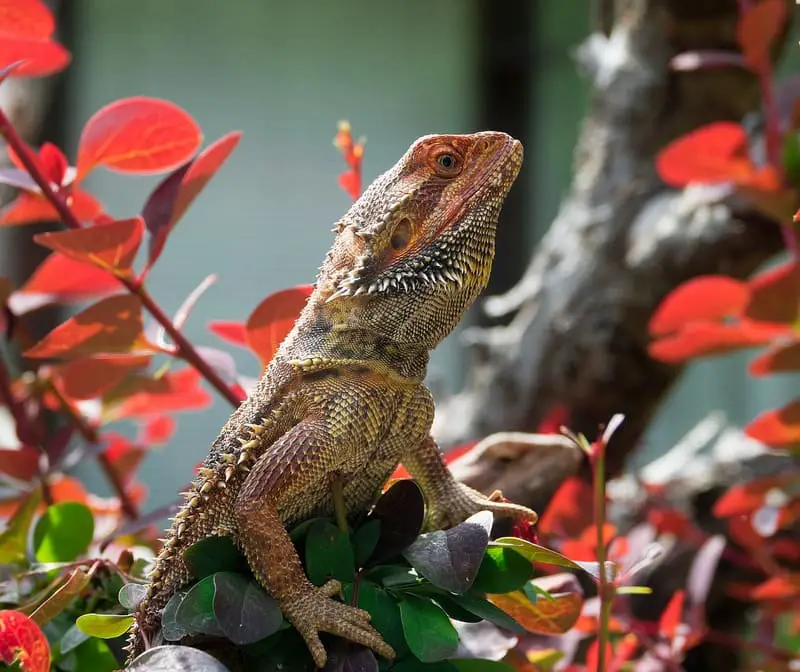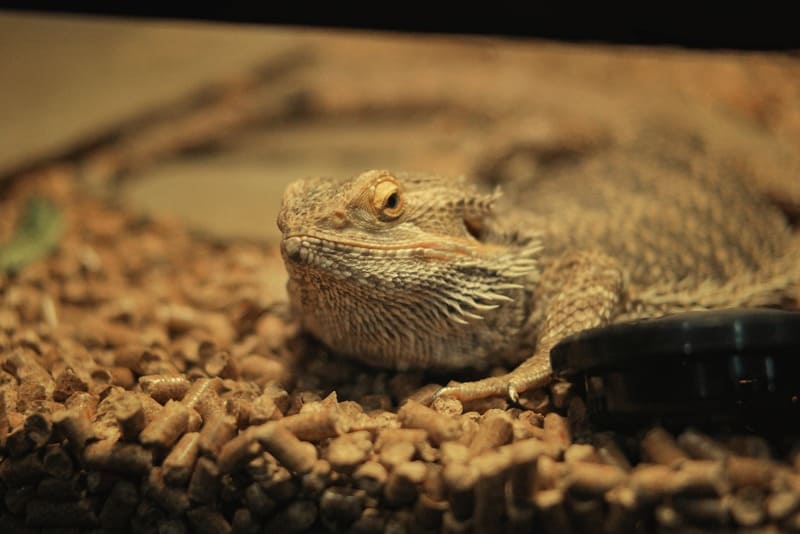Bearded dragons are popular reptile pets known for their unique appearance, gentle demeanor, and omnivorous dietary habits. While the bulk of their diet consists of insects and leafy greens, fruits can be a delightful addition to their meals. Fruits offer not only a sweet treat but also a source of essential vitamins and minerals for these captivating reptiles. In this comprehensive guide, we will explore the world of fruits for bearded dragons, discussing the types of fruits they can eat, their nutritional benefits, and how to safely incorporate them into their diet.

The Omnivorous Diet of Bearded Dragons
Bearded dragons are omnivores, which means they have a diverse diet that includes both animal and plant matter. In the wild, they feed on a wide range of foods, such as insects, small vertebrates, and various plant materials. Their diet in captivity should mirror their natural omnivorous tendencies to ensure they receive the necessary nutrients for growth and health.
A well-balanced diet for a captive bearded dragon typically consists of the following components:
- Insects: Insects are a primary source of protein for bearded dragons. Commonly fed insects include crickets, roaches, mealworms, superworms, and phoenix worms. Insects should be gut-loaded (fed nutritious foods) before being offered to ensure they are nutritionally valuable.
- Leafy Greens: Leafy greens are a vital part of a bearded dragon’s diet, providing essential vitamins, minerals, and fiber. These reptiles need a variety of greens in their diet, including collard greens, mustard greens, dandelion greens, and more.
- Vegetables: Vegetables offer additional nutrients and variety. Bearded dragons can enjoy a selection of vegetables such as bell peppers, squash, zucchini, and carrots.
- Fruits: Fruits are a delicious source of vitamins and natural sugars for bearded dragons. They should be fed in moderation due to their higher sugar content compared to other components of the diet.
- Supplements: Calcium and vitamin supplements may be necessary to ensure your bearded dragon receives all the essential nutrients they need. Dusting insects and greens with calcium powder is a common practice.
In this guide, we will focus on the fruit portion of a bearded dragon’s diet, exploring a wide variety of fruits that are safe and beneficial for these reptiles.
The Role of Fruits in a Bearded Dragon’s Diet
Fruits are an important but relatively small component of a bearded dragon’s diet. They offer several benefits, including:
- Variety: Fruits add variety to a bearded dragon’s diet, making mealtime more interesting and appealing for both you and your pet.
- Natural Sugars: Fruits provide natural sugars that can be a source of quick energy for bearded dragons. This can be particularly beneficial for younger dragons that are still growing.
- Vitamins and Minerals: Fruits contain various vitamins and minerals that contribute to a bearded dragon’s overall health. For example, fruits like papaya and mango are rich in vitamin A, which is essential for good eyesight and immune system function.
- Hydration: Some fruits have a high water content, which can help keep your bearded dragon hydrated. Adequate hydration is crucial for various physiological functions, including digestion and thermoregulation.
However, it’s essential to remember that while fruits offer these advantages, they should be fed in moderation. Fruits tend to be higher in sugar content than other components of a bearded dragon’s diet, and excessive sugar consumption can lead to health issues such as obesity and metabolic disorders. Therefore, the key is to strike a balance by offering fruits as an occasional treat rather than a staple food.

Safe Fruits for Bearded Dragons
Not all fruits are suitable for bearded dragons. Some fruits are toxic or have a high oxalate content, which can interfere with calcium absorption. It’s crucial to select fruits that are safe and nutritionally valuable for your pet. Here is a list of fruits that are generally considered safe for bearded dragons:
1. Apples
Apples are a popular fruit choice for bearded dragons. They are relatively low in oxalates and provide essential vitamins and minerals. However, be sure to remove the seeds and core before offering apple slices to your pet.
2. Pears
Pears are a safe fruit for bearded dragons. They are sweet and nutritious, providing vitamins and dietary fiber. Remove the seeds and tough skin before serving pear slices.
3. Berries
Berries like blueberries, strawberries, and raspberries can be given as treats to your bearded dragon. These fruits are rich in antioxidants and vitamin C. However, remember that berries have relatively high sugar content, so feed them sparingly.
4. Figs
Figs are a good source of dietary fiber and essential minerals like potassium. Bearded dragons can enjoy figs in moderation. Remove the skin before offering them.
5. Papaya
Papaya is a nutritious fruit that is high in vitamin A, vitamin C, and dietary fiber. It can be fed to bearded dragons, but it should be offered in moderation due to its sugar content.
6. Mango
Mango is another vitamin-rich fruit, containing vitamins A and C. Like papaya, mango should be a treat rather than a primary food source due to its sugar levels.
7. Melon
Various types of melons, such as cantaloupe and honeydew, are safe for bearded dragons. These fruits are hydrating and contain essential vitamins and minerals. However, limit their consumption due to their sugar content.
8. Kiwi
Kiwi is a source of vitamin C, vitamin K, and dietary fiber. It is generally safe for bearded dragons, but like other fruits, it should be given in moderation.
9. Grapes
Grapes can be offered as an occasional treat. They are rich in vitamins and minerals but have a relatively high sugar content. Be sure to cut grapes in half to prevent choking hazards.
10. Bananas
Bananas are safe for bearded dragons but should be provided sparingly. They are a good source of potassium and vitamin B6. The high sugar content makes them suitable as an occasional treat.
11. Peaches
Peaches are a safe fruit option for bearded dragons. They contain vitamins, minerals, and dietary fiber. Remove the pit and skin before serving.
12. Plums
Plums are nutritious and can be fed to bearded dragons. Be sure to remove the pit, as it can be a choking hazard. Serve plum slices in moderation.
13. Cherries
Cherries can be offered to bearded dragons, but they should be pitted to avoid potential choking hazards. Cherries are relatively high in sugar, so they should be an occasional treat.
14. Guava
Guava is a fruit with a rich vitamin C content. It is safe for bearded dragons and can be included in their diet in moderation.
15. Peppers
Bell peppers, which come in various colors, are not technically fruits but are often included in discussions of fruit for bearded dragons. They are an excellent source of vitamins and can be fed to your pet as part of their diet.
It’s important to emphasize that while these fruits are generally considered safe for bearded dragons, they should be offered in moderation. Too much fruit in a bearded dragon’s diet can lead to health issues such as obesity and metabolic disorders. Additionally, always remove seeds, pits, and tough skin from fruits to prevent choking hazards and digestive problems.

Preparing Fruits for Bearded Dragons
When offering fruits to your bearded dragon, it’s essential to prepare them properly to ensure your pet’s safety and enjoyment. Here are the steps to follow when preparing fruits for your bearded dragon:
1. Wash Thoroughly
Before feeding any fruit to your bearded dragon, wash it thoroughly to remove any pesticides, chemicals, or residues. Even organic fruits should be washed to ensure they are free from contaminants.
2. Remove Seeds and Pits
Remove all seeds, pits, and tough skin from the fruit. These parts can be choking hazards and may contain substances that are harmful to bearded dragons.
3. Cut into Bite-Sized Pieces
Cut the fruit into appropriately sized pieces for your bearded dragon. These pieces should be small enough to prevent choking but large enough for your pet to handle easily.
4. Serve Fresh
Fruits are best served fresh. Do not offer fruits that have started to rot or develop mold, as they can be harmful to your bearded dragon.
5. Monitor Consumption
Pay attention to how your bearded dragon responds to the fruit you offer. Some individuals may have preferences for certain fruits, while others may not show interest. Always observe their reactions and adjust their diet accordingly.
Moderation Is Key
While it’s delightful to see your bearded dragon enjoy a sweet and juicy treat, it’s essential to remember that moderation is key when it comes to offering fruits. The sugar content in fruits is higher than that of other components of a bearded dragon’s diet, and excessive sugar consumption can lead to various health issues.
As a general guideline, fruits should make up no more than 10% of your bearded dragon’s overall diet. The bulk of their nutrition should come from insects, leafy greens, and vegetables. Fruits should be offered as an occasional treat rather than a staple food source.
Incorporating fruits into a balanced diet is an excellent way to provide variety and additional nutrients for your bearded dragon. It’s also an opportunity to bond with your pet as you offer them different fruits and observe their preferences.
Conclusion
Fruits can be a delightful and nutritious addition to a bearded dragon’s diet. They offer a range of vitamins, minerals, and natural sugars that contribute to your pet’s overall well-being. However, it’s important to remember that fruits should be fed in moderation due to their higher sugar content compared to other components of the diet.
When offering fruits to your bearded dragon, always choose safe options, wash them thoroughly, remove seeds and pits, and cut them into appropriately sized pieces. By following these guidelines and monitoring your pet’s preferences and consumption, you can provide a well-rounded and enjoyable diet for your beloved bearded dragon.
